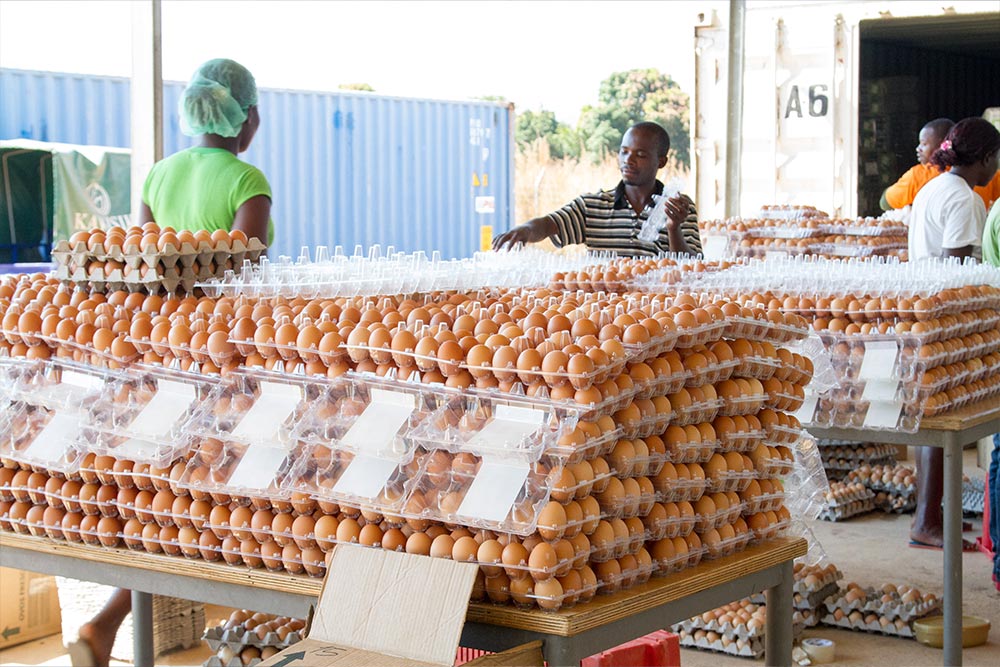Context and investment rationale
In 2012, Aldeia Nova was an agro-industrial center with strong business fundamentals: agro-industry based on collaboration with smallholder farmers and marketing basic food products for the local population. However, after a period of management challenges and unsustainable operations, Aldeia Nova needed critical investment and was identified as an opportunity that aligned with our core DNA.
With a considerable shortage of agricultural production, most food was being imported, with customers paying high prices for basic goods and large portion of the population undernourished.
Given our strong expertise in the food sector, Aldeia Nova presented a unique opportunity to revamp a major food-producing center and to turn around an underperforming business in direct collaboration with smallholder farmers. An investment in Aldeia Nova would contribute to the overall development of the local economy by introducing a model where smallholder farmers’ production had a 100% guaranteed off-take, whilst their disposable income would increase significantly through certainty of sales and higher unit economics. The food products were primarily eggs and dairy – basic nutritious foods that could contribute to local food security needs and deliver a sizeable impact at scale.
Value creation
We initially focused on restructuring the existing asset and installing a sustainable agricultural and industrial business environment by rebuilding trust with the surrounding communities. An experienced management team, who we had previously collaborated with, was identified and hired.
The new management created and implemented an ambitious strategy to reposition Aldeia Nova as a holistic agro-industrial complex. Aldeia Nova would fuse agricultural production with service provision and social development by establishing and operating a large-scale agro-industrial center. This would be implemented through a vertical integration process. The company initiated its own cropping of cereals that would be processed in the feed mill plant and delivered onwards to the farmers for animal feed. The center would also support the community of farmers by providing them with chicks and calves that would produce eggs and milk, mechanical equipment, and veterinary services, with Aldeia Nova subsequently buying 100% of the resulting production.
Under our umbrella, the center also began dairy operations with all dairy processed into fresh milk, yogurt, cheese, ice cream, alongside chicken-based readymade meals, biscuits and other food products that were in high demand in the local market.
It was a business model and environment where smallholder farmers could obtain high-quality inputs at affordable prices, with transformational added value activities performed at the agro-industrial center. Affordable basic goods were packaged and sold for local consumption, contributing to improved, safe nutrition.
Tangible results
At the time of exit, in 2019, Aldeia Nova collaborated with a community of over 700 smallholder farmer families. The average incomes of Aldeia Nova’s smallholder farmers rose to $1,335/month with a net income that was 6.5X the minimum wage. In terms of food security, the company marketed approximately 250,000 eggs/day or 58.5 million eggs per year, providing basic protein for 2.1 million individuals annually. Aldeia Nova became a global case study for Deloitte and others, as a company that is able to serve the bottom of the pyramid while still generating returns.
Aldeia Nova employed over 700 employees, including nearly 20 female managers, and implemented regular capacity-building activities with all employees and farmers through environmental, health and safety, English language and skills-based training.


